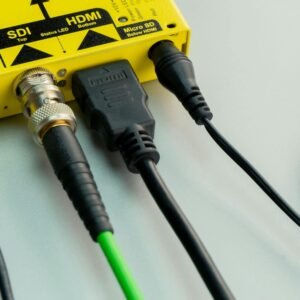Introduction
In today’s world, where indoor air quality is becoming increasingly important, humidifiers have emerged as essential appliances. They play a crucial role in maintaining optimal humidity levels, which can significantly impact our health, comfort, and the overall environment. This article will delve into the intricacies of humidifier air humidifiers, exploring their functions, types, benefits, and considerations for selecting the right one for your needs.
Understanding Humidity
Before we dive into the specifics of humidifiers, it’s essential to grasp the concept of humidity. Low humidity can lead to dry skin, respiratory issues, and static electricity, while high humidity can create a breeding ground for mold and mildew. The ideal humidity level for indoor spaces generally ranges between 30% and 50%.
Types of Humidifiers
There are several types of humidifiers available in the market, each with its own advantages and drawbacks. Let’s explore the most common ones:
- Evaporative Humidifiers: These humidifiers work by passing air over a wet filter or wick. As the air passes over the moist surface, it absorbs moisture and releases it into the room. Evaporative humidifiers are generally quiet and energy-efficient.
- Impeller Humidifiers: Also known as centrifugal humidifiers, these devices use a spinning impeller to create a mist that is dispersed into the air. Impeller humidifiers are often used in larger spaces due to their high output.
- Ultrasonic Humidifiers: These humidifiers use high-frequency sound waves to create a fine mist that is dispersed into the air. Ultrasonic humidifiers are known for their quiet operation and ability to produce a large amount of humidity.
- Steam Humidifiers: These humidifiers boil water to create steam, which is then released into the air. Steam humidifiers are ideal for people with respiratory issues as the steam can help to soothe irritated airways.
Benefits of Using a Humidifier
Using a humidifier offers numerous benefits for your health, comfort, and home environment. Some of the key advantages include:
- Improved Respiratory Health: Dry air can irritate the respiratory system, leading to coughing, congestion, and nosebleeds. A humidifier can help to alleviate these symptoms by adding moisture to the air.
- Relief from Dry Skin: Low humidity can cause dry skin, itching, and flaking. By increasing the humidity levels, a humidifier can help to hydrate your skin and reduce discomfort.
- Better Sleep Quality: Dry air can disrupt sleep by causing nasal congestion and throat dryness. A humidifier can help to create a more comfortable sleeping environment, leading to improved sleep quality.
- Protection Against Static Electricity: High levels of static electricity can be uncomfortable and even harmful.
- Preservation of Wood and Musical Instruments: Dry air can cause wood to shrink and crack. A humidifier can help to maintain the moisture content of wood, preventing damage to valuable items like furniture, musical instruments, and hardwood floors.
Choosing the Right Humidifier
When selecting a humidifier, several factors should be considered:
- Room Size: The size of the room will determine the required output of the humidifier. Larger rooms will need more powerful humidifiers.
- Desired Humidity Level: Consider the ideal humidity level for your specific needs and choose a humidifier that can achieve and maintain that level.
- Noise Level: If you are sensitive to noise, opt for a humidifier with a quiet operation.
- Maintenance Requirements: Different types of humidifiers have varying maintenance needs. Consider the time and effort you are willing to invest in cleaning and maintaining the humidifier.
- Features: Some humidifiers offer additional features like automatic shut-off, humidity sensors, and built-in humidistats. Assess which features are important to you.
Proper Use and Maintenance
To ensure optimal performance and longevity, it’s essential to use and maintain your humidifier correctly:
- Follow the Manufacturer’s Instructions: Always refer to the user manual for specific instructions on filling, cleaning, and maintaining your humidifier.
- Keep the Water Tank Clean: Regularly clean the water tank and filter to prevent the growth of bacteria and mold.
- Use Distilled Water: Using distilled water can help to reduce mineral buildup and ensure cleaner air.
- Place the Humidifier Strategically: Position the humidifier in a well-ventilated area to prevent moisture buildup.
Frequently Asked Questions
What is a humidifier?
It’s particularly useful during dry seasons or in environments with low humidity levels.
Why do I need a humidifier?
Humidifiers can help:
- Improve respiratory health: By moistening the air, they can alleviate dryness, congestion, and coughing.
- Alleviate dry skin: Dry air can lead to itchy and flaky skin. A humidifier can help moisturize your skin.
- Create a more comfortable environment: Humidifiers can help reduce static electricity and make your home feel less dry and stuffy.
- Protect wood and musical instruments: Dry air can cause wood to shrink and crack. A humidifier can help maintain the moisture content of these items.
What are the different types of humidifiers?
Common types include:
- Evaporative humidifiers: These work by passing air over a wet filter or wick.
- Impeller humidifiers: They use a spinning impeller to create a mist.
- Ultrasonic humidifiers: They use high-frequency sound waves to create a mist.
- Steam humidifiers: They boil water to create steam.
Which type of humidifier is best for me?
The best type of humidifier for you depends on your specific needs and preferences. Consider factors like noise level, energy efficiency, and maintenance requirements.
Which type of humidifier is best for me?
The best type of humidifier for you depends on your specific needs and preferences.
How often should I clean my humidifier?
It’s important to clean your humidifier regularly to prevent the growth of bacteria and mold.
Can I use tap water in my humidifier? While you can use tap water, using distilled water can help prevent mineral buildup and ensure cleaner air.
Conclusion
Humidifiers are valuable tools for maintaining optimal indoor air quality and promoting health and comfort. By understanding the different types of humidifiers, their benefits, and proper usage, you can make an informed decision and select the best humidifier for your specific needs. Investing in a quality humidifier can significantly improve your overall well-being and create a healthier living environment.
To read more, click here.





